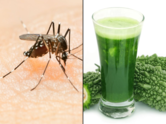01/10Infertility is only seen in women

This is the biggest myth that still exists! This wrong belief is the reason why many women who are unable to get pregnant are ostracized by family and society for being infertile.
However, the fact is men are as likely to be infertile as women are. Infertility in men can be due to abnormal sperm production, problems with delivery of sperm, overexposure to environmental factors, etc.
02/10Coitus interruptus prevents pregnancy


This is one of the biggest myths on sexual health and highlights the poor understanding people have about intercourse.
Also known as the withdrawal method, in this the penis is pulled out of the vagina before the ejaculation. While the act itself is seen as a sure shot way to prevent unwanted pregnancy, the fact is far different from this belief.
Before ejaculation, the penis releases pre-cum which can have a small amount of sperm.
03/10Wearing two condoms will increase the protection


This is a myth and is prevalent because condom is a protective layer worn around the penis to prevent the ejaculation of the sperm into the vagina. People think that when two condoms are worn one above the other it doubles up the protection.
However, the fact is two condoms worn one after the other will create friction among the condoms and will break it.
04/10Taking the pills can save you from STIs


This is a wrong assumption that having oral contraception can save you from sexually transmitted infections (STIs).
The US CDC says, "Birth control methods like the pill, patch, ring, and intrauterine device (IUD) are very effective at preventing pregnancy, but they do not protect against [STIs] and HIV.”
05/10STI can happen only when you have penetrative sex


Many people believe only penetrative sex can cause STIs. However the truth is there are several ways one can contract STIs and it is not just through intercourse.
One can get STI through exposure to an infected person's blood as well.
06/10Only gay people contract HIV


The human immunodeficiency syndrome is caused irrespective of sexual orientation, race, ethnicity, age, or gender.
Anyone who has been exposed to the pathogen can contract the virus.
07/10Urinating after intercourse is not necessary


Urinating after sexual intercourse is highly recommended. Medically it is recommended to empty the bladder after a sexual activity.
The reason behind this is cleaning your urethra after sex helps in removing the pathogens that might have entered during sex.
08/10Sperm can only live for few seconds after it has been released


The fact is sperms can live up to 5-6 days in the body. The sperms can also survive inside the body even after you have washed yourself.
09/10Only those who have multiple partners can get STI


A big no!
The risk of STI depends on the hygiene you and your partner experience during the intercourse. It has nothing to do with the number of sexual partners you have.
If you are sexually active, it is highly recommended to get tested for STIs at regular intervals.
10/10You can’t get pregnant on your period


While it seems unlikely, the answer is yes. The odds of getting pregnant when the woman is on periods is less but it is not entirely zero.
Having sex without contraception increases the chances of pregnancy.
Damar Hamlin collapses on field, was administered CPR for several minutes






















































































closecomments
SIGN IN WITH
FacebookGoogleEmail